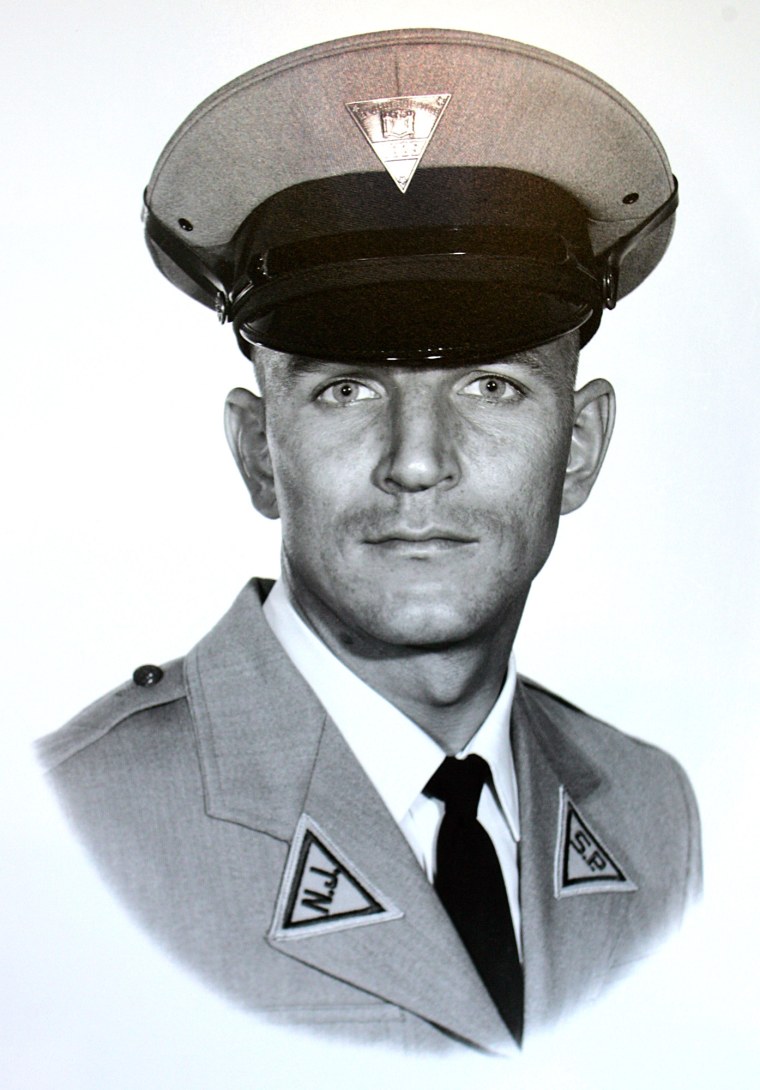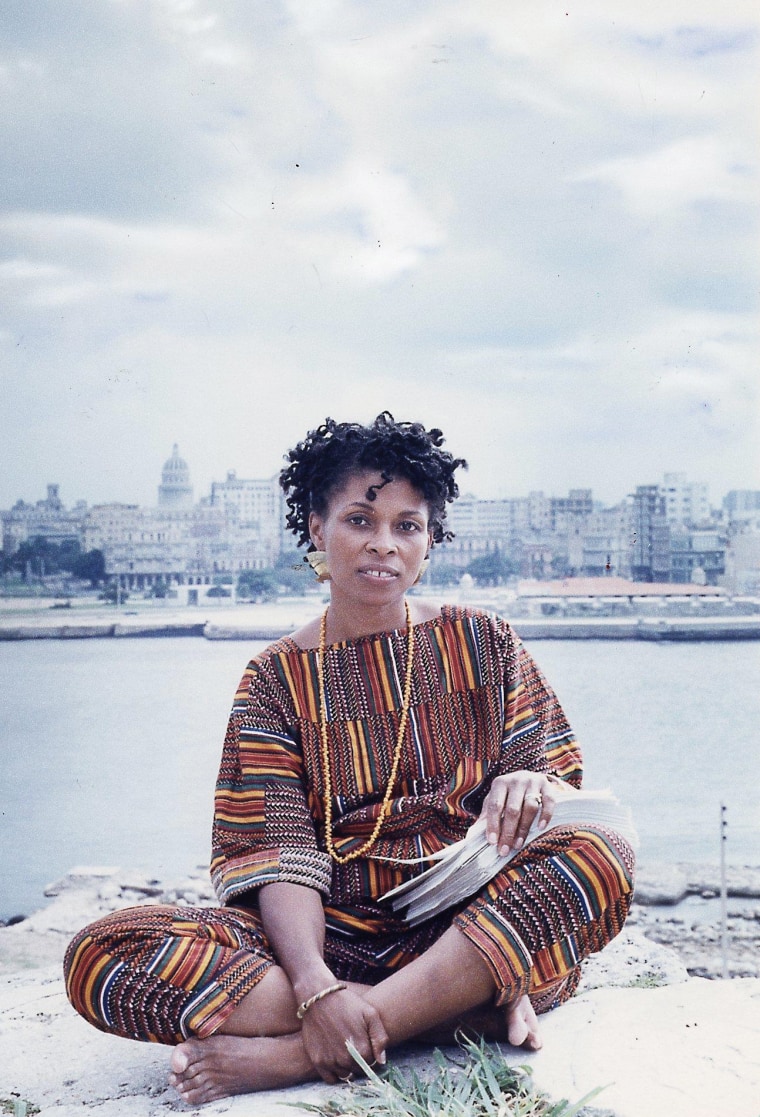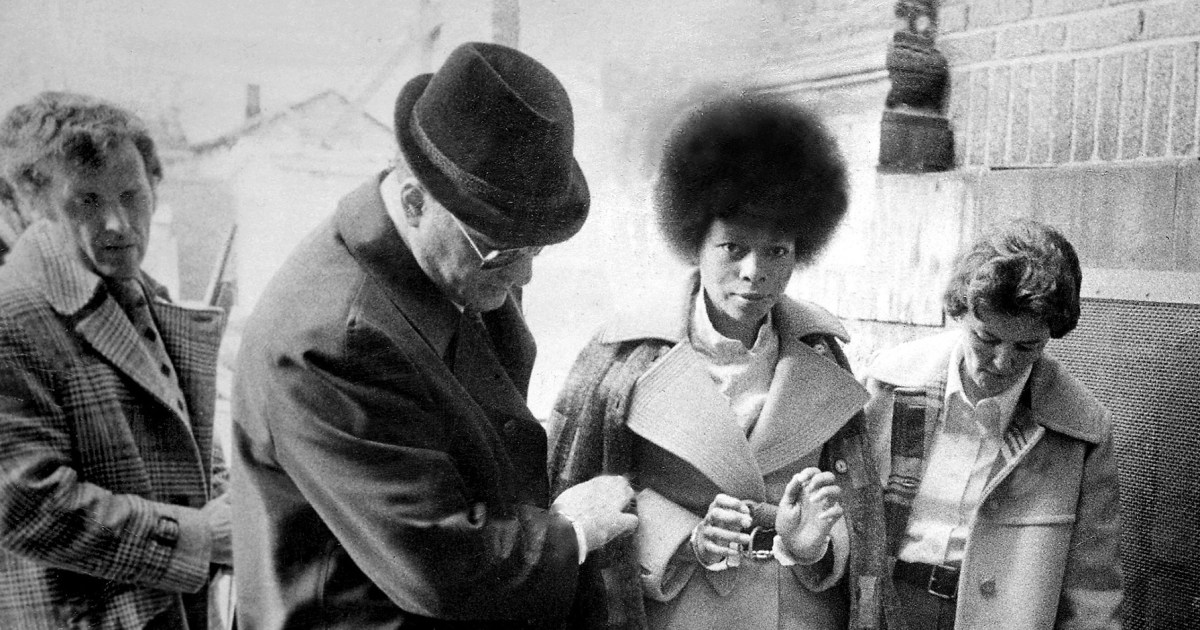Black liberation activist and American fugitive Assata Shakur, who escaped to Cuba more than 45 years ago after she was convicted of killing a New Jersey state trooper, died in Havana, the government announced Friday.
She was 78.
Shakur, who changed her name from Joanne Chesimard, died Thursday from health ailments and advanced age, according to a short statement released by the Cuban Foreign Ministry.
“Words cannot describe the depth of loss that I am feeling at this time. I want to thank you for your loving prayers,” her daughter Kakuya Shakur wrote in a Facebook post.
Shakur was involved in a shootout during a traffic stop on the New Jersey Turnpike in 1973. State Trooper Werner Foerster, the second officer responding to the scene, found a loaded gun on the driver of the car, according to previous NBC News reporting. Shakur was in the front passenger seat and another man was seated behind her.
There was an exchange of gunfire. James Harper, the state trooper who initially pulled the group over, said he saw Shakur shoot Foerster in the stomach with the officer’s gun after he tussled with the driver, who also shot Foerster in the arm.
 State Trooper Werner Foerster.AP file
State Trooper Werner Foerster.AP file
Shakur and two men she was with returned to the car and drove five miles down the New Jersey Turnpike. One of the men with them, James Coston, died in the car. As they dumped Coston’s body on the side of the road, police caught up to the group. Shakur was arrested while the driver fled and was found nearly two days later.
Shakur, who was sentenced to life in prison, denied shooting Foerster. To supporters, she was an activist jailed for crimes she did not commit.
In a statement, Foerster’s family said her death did not bring any joy to them, but did bring “a measure of closure to a tragedy that has deeply affected our family and community.”
“While this development marks the end of a long and painful chapter, it does not erase the profound loss we continue to feel each day,” the family said. “The pain of losing Werner is something we carry every single day. His absence is felt in every quiet moment, every family gathering, and every milestone he should have been here to witness.”
Shakur was born Joanne Deborah Byron in Queens, New York, on July 16, 1947. After what she described in her autobiography as a troubled childhood, she became involved in political activism at the Borough of Manhattan Community College and City College of New York. She was a member of the revolutionary Black Liberation Army, as well as the Black Panther Party. At 21, she married Louis Chesimard, though their marriage lasted only a year.
Shakur was serving a life sentence at the Clinton Correctional Facility for Women in New Jersey after being convicted in 1977 of murder in Foerster’s death. She had also been implicated in armed robbery and other crimes. She escaped from prison on Nov. 2, 1979, with the help of members of the Black Liberation Army who posed as visitors. She turned up a few years later in Cuba, where the island’s leader at the time, Fidel Castro, granted her political asylum. She published an autobiography in 1987.
Because Cuba repeatedly refused to extradite her to the U.S., Shakur and other fugitives living in Cuba became a major sticking point in negotiations between the U.S. and the communist-run island after President Barack Obama re-established diplomatic relations between the two countries.
Then-New Jersey Gov. Chris Christie said Shakur should be returned to New Jersey after the ceremonial reopening of the U.S. Embassy in Cuba in 2015.
Gov. Phil Murphy and state Police Superintendent Col. Patrick Callahan said in a statement Friday that their offices have worked with the State Department in previous attempts to bring Shakur back to New Jersey to face accountability for Foerster’s killing and for fleeing the country.
“We will vigorously oppose any attempt to repatriate Chesimard’s remains to the United States,” they wrote.
Shakur became the first woman on the FBI’s list of most wanted terrorists in 2013. She was added to the list on the anniversary of Foerster’s death. There was a $2 million reward for information leading to her arrest.
Supporters of Shakur, who was rapper Tupac Shakur’s godmother through her brother Mutulu Shakur, believed she was a target of law enforcement for her involvement with the Black Liberation Army.
 Shakur, with the manuscript of her autobiography, in Havana, in 1987.Ozier Muhammad / Newsday RM via Getty Images file
Shakur, with the manuscript of her autobiography, in Havana, in 1987.Ozier Muhammad / Newsday RM via Getty Images file
In a 1998 interview with NBC New York in Havana, Shakur said she had never killed anyone and was found guilty in an “unfair trial” by an all-white jury.
“I was shot with my arms in the air, then shot again in the back and left on the ground to die,” she said. “Next thing I knew, they were coming by me and saying, ‘Is she dead yet, is she dead yet?’”
She said she was later taken to a hospital, where she was beaten and tortured by state troopers who she said would stick their hands in her wounds and ask if it hurt.
“American racism has done to another Black person what it has done to Black people down through the years,” Shakur’s defense attorney William Kunstler said in 1977. “The reality is, this beautiful young Black woman never had a chance, but we, like liberal fools, still had hopes.”

